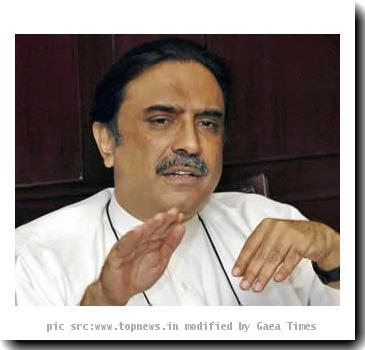‘God, why have you done this?’ Pakistani flood victim asks as evacuations start in south
By Ashraf Khan, APThursday, August 5, 2010
Pakistan starts flood evacuations in south
KARACHI, Pakistan — Pakistani authorities began evacuating half a million people living along the swollen Indus River in the country’s south on Thursday, as floods caused by the worst monsoon rains in decades threatened new destruction.
The floods have already killed an estimated 1,500 people over the past week, most of them in the northwest, the center of Pakistan’s fight against al-Qaida and the Taliban. An estimated 4.2 million Pakistanis have been affected, including many in eastern Punjab province, which has seen numerous villages swallowed by rising water in recent days.
The flooding is one of several crises that has hit Pakistan since mid-July, including a suicide bombing in the northwest city of Peshawar, a plane crash that killed 152 people in the capital, and a spurt of politically motivated killings that have left dozens dead in the southern city of Karachi.
On Thursday afternoon, a bus plunged into a swollen river in Pakistan’s section of the disputed Kashmir region, killing 20 people and leaving around 20 missing. Eight injured passengers were rescued, government official Chaudhry Imtiaz said.
The government’s overall response has been faulted, especially because Pakistani President Asif Ali Zardari left for a visit to Europe as the crises piled up.
As fresh rains fell Thursday, bloated rivers gushed toward southern Sindh province, where hundreds of thousands of the most impoverished Pakistanis live along the water because of its fertility and because it is cheaper than safer ground.
The Indus originates in the Himalayas and travels through the country, emptying into the Arabian Sea. In Sindh, some 150 points along the Indus were considered especially vulnerable, officials said.
Authorities are using 30 boats to help the evacuation of some 500,000 people living along the river banks and have set up 400 relief camps, said Sauleh Farooqi, a top disaster-response official in the province.
“Rains have weakened the protective walls and embankments (along the river), but we are trying to reinforce them,” Farooqi said. “It was difficult to get the people to move from their places because they were not willing to leave.”
In Punjab, the army used boats and helicopters to move stranded villagers to higher ground. Many of the survivors carried what possessions they could, from clothing to pots and pans. Many held their children.
“We are migrants in our home,” said Ahmad Bakhsh, 56, who fled flooded Sanawan town. “Oh God, why have you done this?”
An aerial view from a military helicopter showed that a vast area between Multan and Muzaffargarh cities looked like a large lake, with the occasional dead cow floating by.
Maj. Gen. Nadir Zeb, the region’s army commander, said many people had ignored flood warnings and only realized the danger of the situation when water entered their cities, towns and villages.
“They risked their lives, but we are reaching them,” he said.
In the northwest, which has not seen such flooding since 1929, rescue workers have struggled to deliver aid because of washed-out bridges and roads. Manuel Bessler, the U.N.’s humanitarian chief in Pakistan, said at least 4.2 million people were affected, and that the potential for waterborne diseases was worrisome.
“We are facing a disaster of major proportions,” Bessler told reporters in Geneva by telephone. “Even a week after the disaster we don’t have all the details. Roads are washed away. Bridges are destroyed. Whole areas are completely isolated and only accessible by air.”
Poor access to isolated areas was leading people to “feel abandoned and not taken care of,” Bessler said.
Many flood victims have complained that aid is not reaching them fast enough or at all, expressing anger against the Pakistani government that could grow as the floods spread.
Zardari — ever fearful of militant threats — rarely makes public appearances even when he is in Pakistan. A few months ago, he agreed to constitutional reforms that transferred many of his presidential powers to the prime minister, leaving him more of a figurehead.
Still, victims and rival politicians have pounded Zardari for his trip overseas.
“In the face of such calamity, the people need to feel that their leaders are standing by them,” said an editorial in the News, a newspaper that makes no secret of its dislike of the president.
Zardari aide Farahnaz Ispahani said the president was thinking of Pakistan’s long-term future in tackling the diplomatic front. Zardari’s schedule includes a meeting with British Prime Minister David Cameron, who recently caused a fury in Pakistan by accusing it of exporting terror.
“The government must continue its business so that the nation moves forward,” Ispahani said. “This may not play to the galleries, but everything cannot come to a standstill when there is a disaster, especially in a parliamentary democracy with a prime minister and Cabinet in place.”
Associated Press writers Khalid Tanveer in Kot Addu, Zarar Khan in Islamabad, and Bradley S. Klapper in Geneva contributed to this report.
Tags: Asia, Asif Ali Zardari, Emergency Management, Floods, Karachi, Pakistan, South Asia


